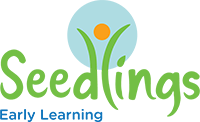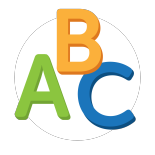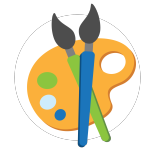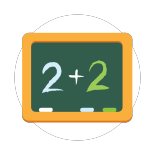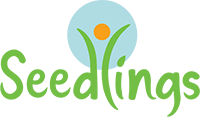Reggio Program
Reggio Emilia Approach to Learning
The Reggio Emilia approach is a philosophy for early childhood education developed in the 1950’s by psychologist Loris Malaguzzi and parents in the villages around Reggio Emilia, Italy. Central to the philosophy are the following principles:
The Seedlings curriculum draws inspiration from this approach, and several of our teachers are experts in Reggio. Classroom activities are influenced by the interests of children, with teachers acting as facilitators to learning. This approach is not only tremendously motivational, but also allows children to develop their creativity and love of learning through what are termed "the 100 languages of the child". This refers to the many ways that children have of expressing themselves. Reggio teachers provide children different avenues for thinking, revising, constructing, negotiating, developing and symbolically expressing their thoughts and feelings. The Reggio Emilia approach is not a method, and no international certifications exist. Outside of the town of Reggio Emilia, all schools and preschools are Reggio-Inspired, using an adaptation of the approach that suits the specific needs of their communities.
"Classroom activities are influenced by the interests of children, with teachers acting as facilitators to learning."
At Seedlings, Children are exposed to a variety of activities, including art, science, music circle, physical movement, teacher directed learning, and student directed activities and free play. Our well-balanced program ensures that children are academically challenged, while also having time to enjoy themselves and develop social skills through free play with others.
A central aspect of our curriculum is that of learning through projects. Most classroom activities are structured to support the development of the current project, thus enhancing and supplementing concepts and language learning. The process occurs through both class and small group work, and is social in nature. Discussions and activities requiring high levels of teacher involvement are completed in small groups, where children are encouraged to voice and share their ideas with others. These groups are selected by the teachers considering each child’s language proficiency and developmental stage. The direction of the project usually results from ideas expressed by the children in the small group work, and is hence emergent.
"Where children are encouraged to voice and share their ideas with others."
Project themes can be based on current events, such as Canada’s 150th birthday, but can also be as simple as the first snowfall of the year, or about a child’s interest – for example, about the trains from Thomas and Friends’ Engines.
In a recent project, kids made Christmas cards which they sold to family and friends to raise money for the Operation Christmas Child initiative. With teachers’ guidance, kids selected items that teachers purchased with the raised money, and sent the boxes to Operation Christmas Child. They had the opportunity to practice generosity, and develop awareness of global issues and others’ needs. Throughout the project, students were exposed to basic math concepts to determine what they could afford for the boxes, and were also exposed to basic geography by locating destination countries on the map.
At Seedlings, we pride ourselves on the quality of our education. We provide a rich and safe environment, and our Reggio inspired programs are an ideal place for your child to flourish both academically and socially.
OUR LOCATIONS
Full day Spanish Preschool & Daycare
Full day Bilingual Preschool & Daycare
Spanish Kindergarten
Bilingual Kindergarten
Full day Spanish Preschool & Daycare
Full day Bilingual Preschool & Daycare
Spanish Kindergarten
Bilingual Kindergarten
Full day Spanish Preschool & Daycare
Full day Bilingual Preschool & Daycare
Spanish Kindergarten
Bilingual Kindergarten
SPANISH - BILINGUAL - ENGLISH Programs
Full day
Preschool - Kinder - Daycare
Full day Spanish Daycare
Full day Spanish Preschool
Half day Spanish preschool for both AM and PM
Spanish Kindergarten
Spanish before and after school - kinder students
Full day Spanish Preschool
Full day Spanish Daycare
Spanish Kindergarten
Spanish before and after school care - kinder students
Testimonials
© Copyright 2022 | Seedlings | Powered by GrowME Marketing | Privacy Policy | Terms | Disclaimer | Login
